
Self - Politician (archive footage)
En 1945, dos jóvenes soldados estadounidenses, los hermanos Budd y Stuart Schulberg, reciben el encargo de recopilar pruebas filmadas y grabadas de los horrores cometidos por el infame Tercer Reich para demostrar los crímenes de guerra nazis durante los juicios de Núremberg (1945-46). La historia de la realización de «Núremberg: una lección para el mundo de hoy», un documental histórico de primer orden, estrenado en 1948.
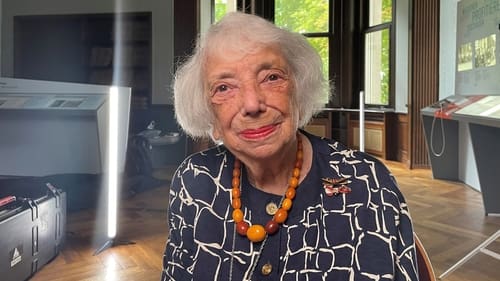
Self (archive footage)
It was arguably the deadliest conference in human history. The topic: plans to murder 11 million Jews in Europe. The participants were not psychopaths, but educated men from the SS, police, administration and ministries. The invitation to the meeting at Wannsee came from Reinhard Heydrich, head of the Reich Security Main Office. The Wehrmacht's campaigns of conquest in Eastern Europe marked the beginning of the systematic murder of Jews in Poland and the Soviet Union. In mid-September 1941, Hitler made the decision to deport all Jews from Germany to the East. Although there had been transports before, Hitler's order represented a further escalation in the murderous decision-making process. Persecution and discrimination had been part of everyday life since 1933. But as a result, the living conditions for the Jews in the Third Reich became even more difficult, among them the Berlin Jew Margot Friedländer, born in 1921, and the Chotzen family.
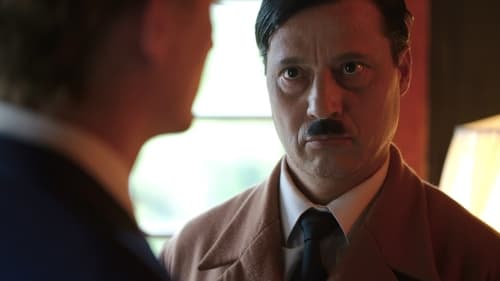
Self (archive footage)

Self (archive footage) (uncredited)
Countless people around the world know the pictures from Leni Riefenstahl's films, even if they have not seen them in their entirety. The work of the German director has burned itself into the collective memory. Even decades after the end of the Nazi era, she showed no remorse and presented herself as an apolitical, naive follower of the Nazi criminal regime. Her artistic service for the cinema was always recognized. But book author Nina Gladitz shows after decades of research that Hitler's favorite filmmaker was not only a follower, but also a perpetrator during the Third Reich, who instrumentalized other filmmakers such as the brilliant cinematographer Willy Zielke in order to gain fame for herself.
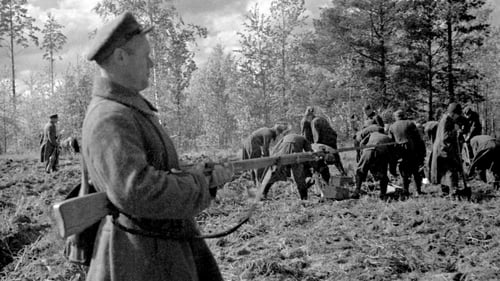
Self (archive footage)
The Katyn massacre, carried out by the Soviet NKVD in 1940, was only one of many unspeakable crimes committed by Stalin's ruthless executioners over three decades. The mass murder of thousands of Polish officers was part of a relentless purge, the secrets and details of which have only recently been partially revealed.
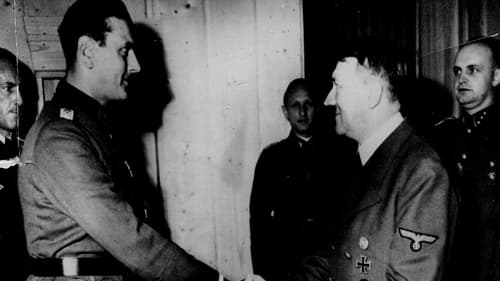
Self - Politician (archive footage)
El oficial de las Waffen-SS Otto Skorzeny (1908-75) se hizo famoso por su participación en audaces acciones militares durante la Segunda Guerra Mundial. En 1947 fue juzgado y encarcelado, pero escapó menos de un año después y encontró un refugio seguro en España, país gobernado con mano de hierro por el general Francisco Franco. ¿Qué hizo Skorzeny durante los muchos años que pasó allí?

Self - Politician (archive footage)
Tucson, Arizona, septiembre de 1996. A petición de su hijo Martin, George Goldsmith recuerda su pasado en la Alemania nazi como miembro de una familia de músicos judíos y la extraña historia de la Jüdischer Kulturbund, una organización judía patrocinada por el ministro del Reich Joseph Goebbels.
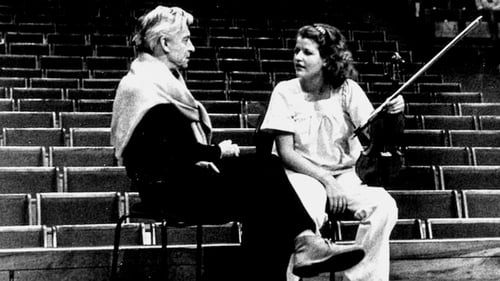
Self - Politician (archive footage)
An account of the life and work of controversial German orchestra conductor Herbert von Karajan (1908-89), celebrated as one of the greatest musicians of the twentieth century.
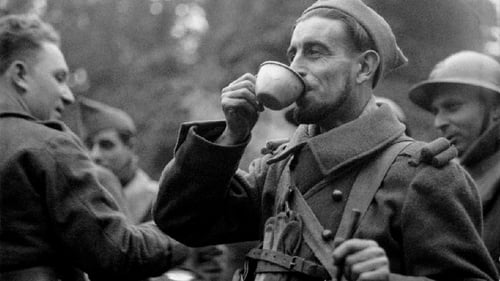
Self - Politician (archive footage)
September 3rd, 1939. Britain and France declare war on Nazi Germany, only two days after the Wehrmacht invades Poland. This day, the sad date when the fate of the world changed forever, the Phoney War began: eight months of uncertainty, preparations, evacuations and skirmishes.
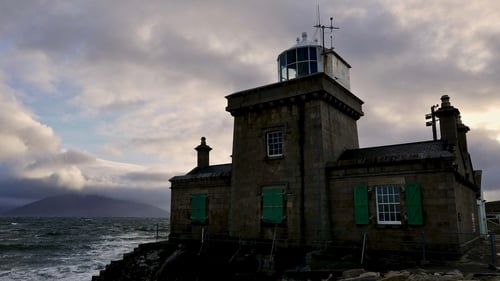
Himself (archive footage)
Ireland, June 1944. The crucial decision about the right time to start Operation Overlord on D-Day comes to depend on the readings taken by Maureen Flavin, a young girl who works at a post office, used as a weather station, in Blacksod, in County Mayo, the westernmost promontory of Europe, far from the many lands devastated by the iron storms of World War II.
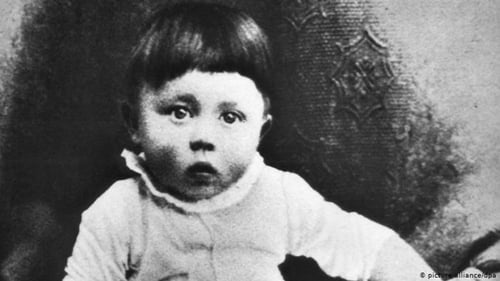
Self (archive footage)
Adolf Hitler no terminó la escuela ni tuvo ninguna formación profesional. Ocasionalmente vivió en refugios para indigentes o en la misma calle, negándose a buscar un trabajo estable. Aún a día de hoy parece inexplicable que pudiera llegar a Führer del Reich alemán, uno de los hombres más poderosos del siglo XX, y ser responsable de la muerte de millones de personas. Alemania lo adoró y lo siguió con fe ciega al abismo de la Segunda Guerra Mundial. A pesar de todo, mantuvo sus orígenes y su vida privada en el mayor de los secretismos. Ahora los contemporáneos de Hitler, desde su nacimiento hasta su muerte, nos ayudan a arrojar luz sobre la gran cuestión pendiente: ¿Quién fue en realidad Adolf Hitler?
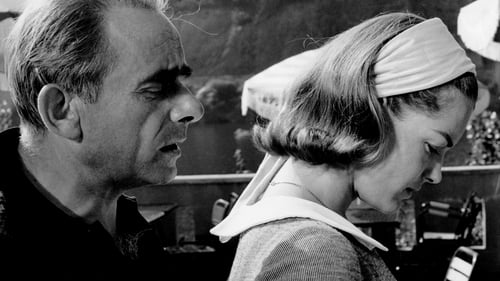
Self (archive footage)
Great filmmakers claim the artistic influence of French director Henri-Georges Clouzot (1907-1977), a master of suspense, with a unique vision of the world, who knew how to offer both great shows and subtle studies of characters. Beyond the myth of the tyrannical director, a contrasting portrait of a visionary, an agitator, an artist against the system.
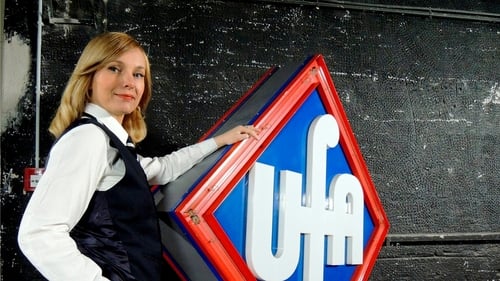
Self - Politician (archive footage)
The intricate history of UFA, a film production company founded in 1917 that has survived the Weimar Republic, the Nazi regime, the Adenauer era and the many and tumultuous events of contemporary Germany, and has always been the epicenter of the German film industry.
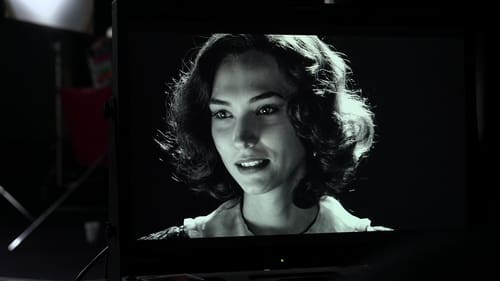
Himself - Politician (archive footage)
The story of Italian cinema under Fascism, a sophisticated film industry built around the founding of the Cinecittà studios and the successful birth of a domestic star system, populated by very peculiar artists among whom stood out several beautiful, magnetic, special actresses; a dark story of war, drugs, sex, censorship and tragedy.
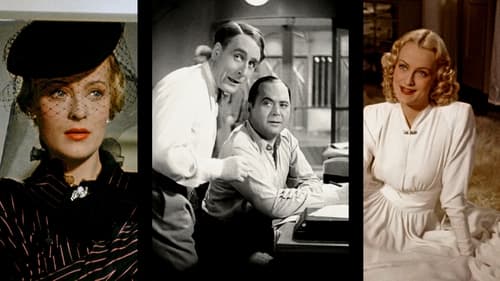
Self - Politician (archive footage)
El periodista y crítico de cine Rüdiger Suchsland examina el cine alemán desde 1933, año de la llegada de los nazis al poder, hasta 1945, año de la caída del Tercer Reich. (Secuela de «De Caligari a Hitler», 2015.)
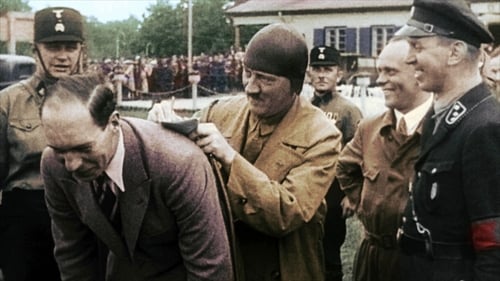
Self (archive footage)
How Germany was when its people entered the nightmare of World War II? Despair and fear lead a hungry population to follow the chilling call of just one man to world domination. A real-life horror story, an ominous tale of violence and deception, which takes place from 1919 to 1934. (Entirely made up of restored, colorized archival footage.)

Self (archive footage)

Self (archive footage)

Self (archive footage)
Stealing Klimt recounts the struggle by 90-year-old Maria Altmann to recover five Gustav Klimt paintings stolen from her family by the Nazis in Vienna. From the end of the War up until last year, these paintings hung in the Austrian National Gallery. The film covers Maria's early life in glittering fin-de-siècle Vienna, her dramatic escape from Nazi terror and her courageous fight to recover the five Klimt's against all the odds. Maria's fight to reclaim the paintings eventually took her to the United States Supreme Court and pitted her not just against Austria but also against the US Government which asked the Supreme Court to reject her case. After Maria finally emerged victorious in 2006, one of the paintings - the "Golden Portrait" of Maria's aunt, Adele Bloch Bauer - was sold to cosmetics tycoon Ronald Lauder for $135m, becoming the world's most expensive painting ever sold. The other four paintings were recently auctioned at Christie's for record prices.

Self (archive footage)
In September 2001, respected German historian Lothar Machtan dropped a bombshell on the world of Hitler studies: Hitler was secretly homosexual. His highly acclaimed and explosive book "The Hidden Hitler" ignited a storm of controversy. With information from the bestselling book, award-winning filmmakers Fenton Bailey, Randy Barbato and Gabriel Rotello explore areas of the Führer's private life.

Self (archive footage) (uncredited)
The films, affairs and struggles of the iconic star of The Blue Angel as told by Rosemary Clooney, Roger Corman, Deanna Durbin and many more.
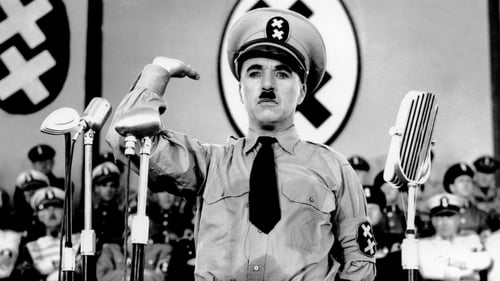
Self (archive footage) (uncredited)
A look at the parallel lives of Charlie Chaplin and Adolf Hitler and how they crossed with the creation of the film “The Great Dictator,” released in 1940.

Executive Producer
"Götterdämmerung 1945: The last 10 weeks of the Third Reich" - from the battle of the Ardennes till the end. Die Deutsche Wochenschau (The German Weekly Review) was the title of the unified newsreel series released in the cinemas of Nazi Germany from 1940 until the end of World War II.

Self (archive footage) (as Josef Goebbels)
The mass murder of Jewish people by the Nazi regime is chronicled, with a warning that anti-Semitism is on the rise and the events of the Holocaust could happen again. The history of European Jewish culture and events before and during the Holocaust are seen in newsreels, photographs, and animated segments. The words of the victims of the era are read, and footage from the liberation os a concentration camp is shown.

Self (archive footage)
Swastika is a feature length documentary about the way in which the Nazi regime infiltrated the lives of the German population, during 1933-45.
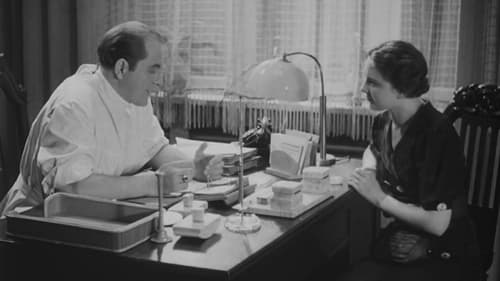
Self (archive footage)
Documento histórico, en los cuales se analiza el surgimiento del fascismo en Alemania como consecuencia de la gran crisis del capitalismo a finales de los años 20 y el auge del nazismo apoyado por el capital financiero alemán.
Usando materiales fílmicos provenientes de los archivos nazis, Mikhail Romm, discípulo de Eisenstein, analiza mediante en un relato ameno e impactante, y muy irónico, el carácter populista del fascismo y el efecto de la propaganda en la psicología de masas, que llegó a extremos tales de hacer del ser humano simples máquinas de matar.

Self (archive footage) (uncredited)
Documents the major trial of the Nazi war criminals and the violent acts that they were accused of.

Self (archive footage)
The film begins with the First World War and ends in 1945. Without exception, recordings from this period were used, which came from weekly news reports from different countries. Previously unpublished scenes about the private life of Adolf Hitler and Eva Braun were also shown for the first time. The film was originally built into a frame story. The Off Commentary begins with the words: "This film [...] is a document of delusion that on the way to power tore an entire people and a whole world into disaster. This film portrays the suffering of a generation that only ended five to twelve. " The film premiered in Cologne on November 20, 1953, but was immediately banned by Federal Interior Minister Gerhard Schröder in agreement with the interior ministers of the federal states of the Federal Republic of Germany.

Self (archive footage)
As the title of this French documentary indicates, Ce Siecle a 50 Ans examines the 20th Century at its halfway point. Utilizing the archives of several European film reserves, director Denise Tua offers a fascinating mosaic of the people and events that shaped the years 1900 to 1950. Complementing the vintage film clips are three dramatized sketches, delineating the romantic customs of three different points in time. These sketches are inadequately performed, and can easily be ignored. Ce Siecle a 50 Ans both preserved and provided celluloid material for scores of future documentaries.
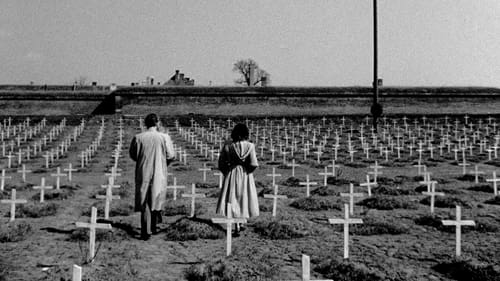
Self - Politician (archive footage)
Praga, durante la Segunda Guerra Mundial. Hana Kaufmann, una oftalmóloga judía, se casa con el Dr. Antonín Bureš, un hombre cristiano. Cuando su familia es enviada al campo de concentración de Theresienstadt, su romance se convierte en una lucha por la supervivencia.
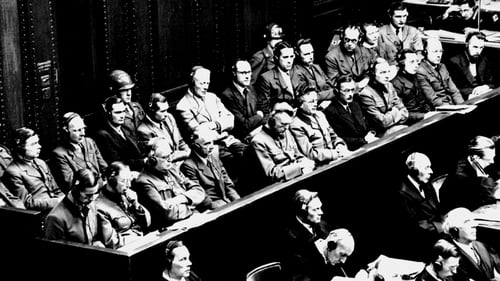
Self
How, in November 1945, after the end of the World War II and the fall of the Third Reich, the international prosecutors participating in the first Nuremberg trial —formally, the International Military Tribunal— built their case against the top Nazi war criminals using the films and records produced by the own regime, obsessed with documenting everything in its long path of infamy and crime.

Self (archive footage)
An account of Adolf Hitler's rise and fall, his relationship with Eva Braun and their days of leisure at the Berghof, their Bavarian residence.

Himself (archive footage)
This riveting Russian documentary takes you inside the trials of the notorious German war criminals, brought to trial to account for their actions. The footage includes excerpts from the trials of many of the senior Nazis including Goebels and Goring.
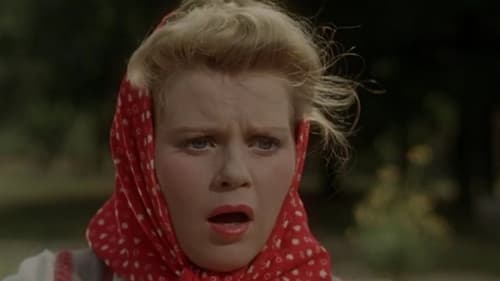
Executive Producer
During Napoleon's victorious campaign in Germany, the city of Kolberg gets isolated from the retreating Prussian forces. The population of Kolberg refuses to capitulate and organizes the resistance against the French army, which immediately submits the city to massive bombardments.

Self (archive footage) (uncredited)
A featureless land fit only for war, as the narrator, J. L. Hodson stated in the early scenes: "If war was to be fought then let it begin here". In endless miles of rock-strewn scrub desert, where civilians hardly existed. Desert Victory tells the story of the Allied campaign to drive Germany and Italy from North Africa is analysed, with the major portion of the film examining the battles at El Alamein, including some re-enactment. Won "Best Documentary Feature" at the 16th Academy Awards in 1944.

Self (archive footage)
A documentary about the threat of war breaking out in Europe, focusing on Hitler, Stalin and Mussolini.

Self (uncredited)
Documental sobre los Juegos Olímpicos celebrados en la ciudad de Berlín en 1936. Divida en dos partes de 118 y 107 minutos, respectivamente, el atletismo ocupa buena parte de su metraje, incluida la primera parte en su integridad. La segunda incluye imágenes de gimnasia, vela, pentatlón, decatlón, hockey sobre hierba, polo, fútbol, ciclismo, hípica, remo, salto y natación.
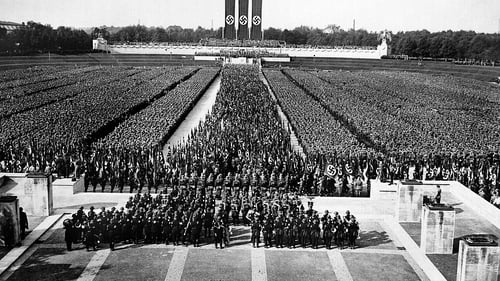
Self
Alemania, año 1934. Adolf Hitler acababa de llegar al poder un año antes. En Nuremberg el partido nacionalsocialista celebra un triunfalista y patriótico congreso en el que se exaltan los valores raciales y patrios del pueblo ario alemán.
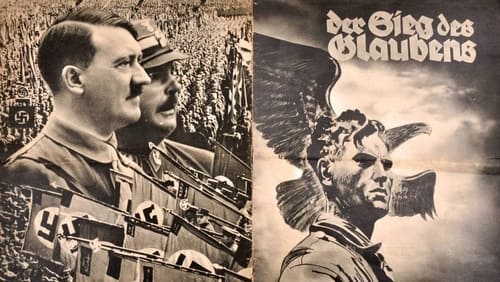
Self
Cobertura del 5º Congreso del Partido Nazi en Nürenberg, del 1 al 3 de septiembre de 1933. El documental comienza con el amanecer del primer día, cuando la tranquilidad se transforma en un bullicio que culmina con la llegada de Hitler.

Self
A propaganda film of the Nazi Party from the year of the “Machtergreifung” in 1933. The film is a contemporary interesting document that illustrates the self-perception of the party at the beginning of their importance in terms of power politics.

Self - Politician (archive footage)
El periodista español Manuel Chaves Nogales (1897-1944) estaba allí donde estaba la noticia: en la España fraticida del 36, en la Rusia bolchevique, en la Italia fascista, en la Alemania nazi, en un París amenazado o en el Londres bombardeado de la Segunda Guerra Mundial; porque su oficio era andar y contar historias y luchar contra los totalitarismos, en una época en la que había que tomar partido para no quedarse solo. Pero él, íntegro, nunca lo hizo.





































